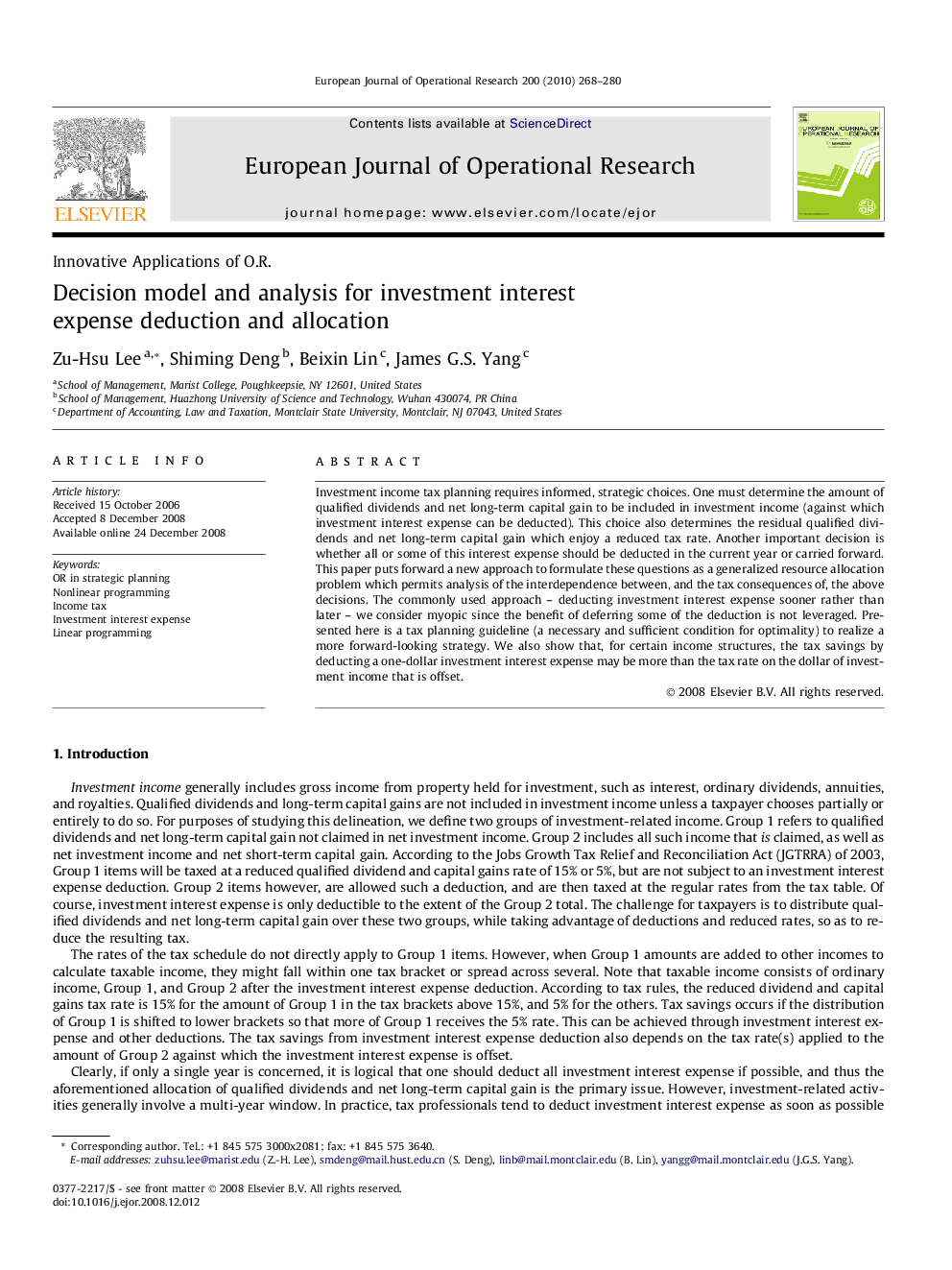| Article ID | Journal | Published Year | Pages | File Type |
|---|---|---|---|---|
| 480872 | European Journal of Operational Research | 2010 | 13 Pages |
Investment income tax planning requires informed, strategic choices. One must determine the amount of qualified dividends and net long-term capital gain to be included in investment income (against which investment interest expense can be deducted). This choice also determines the residual qualified dividends and net long-term capital gain which enjoy a reduced tax rate. Another important decision is whether all or some of this interest expense should be deducted in the current year or carried forward. This paper puts forward a new approach to formulate these questions as a generalized resource allocation problem which permits analysis of the interdependence between, and the tax consequences of, the above decisions. The commonly used approach – deducting investment interest expense sooner rather than later – we consider myopic since the benefit of deferring some of the deduction is not leveraged. Presented here is a tax planning guideline (a necessary and sufficient condition for optimality) to realize a more forward-looking strategy. We also show that, for certain income structures, the tax savings by deducting a one-dollar investment interest expense may be more than the tax rate on the dollar of investment income that is offset.
